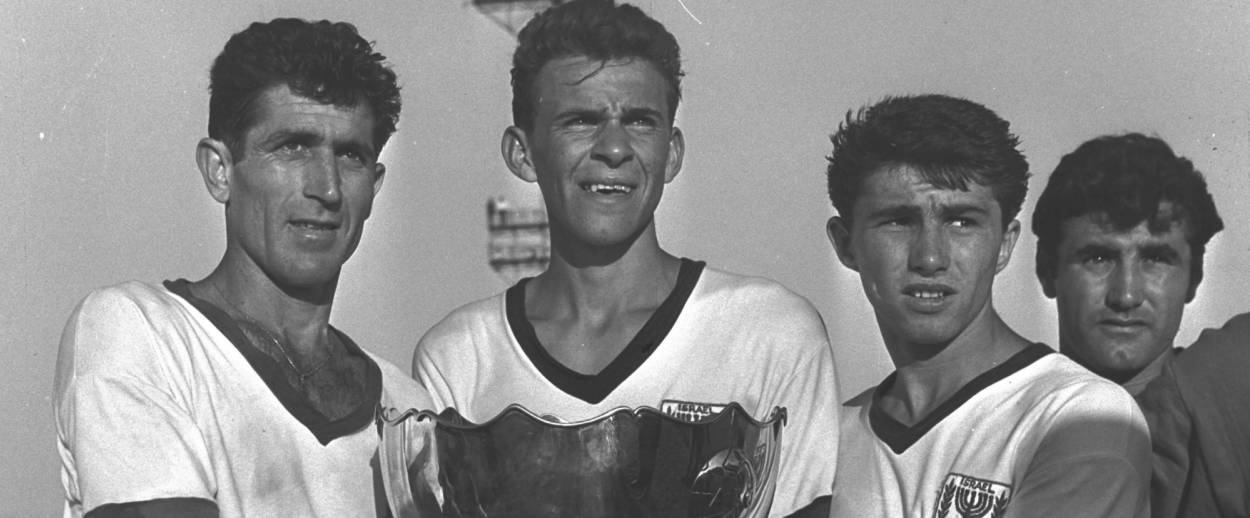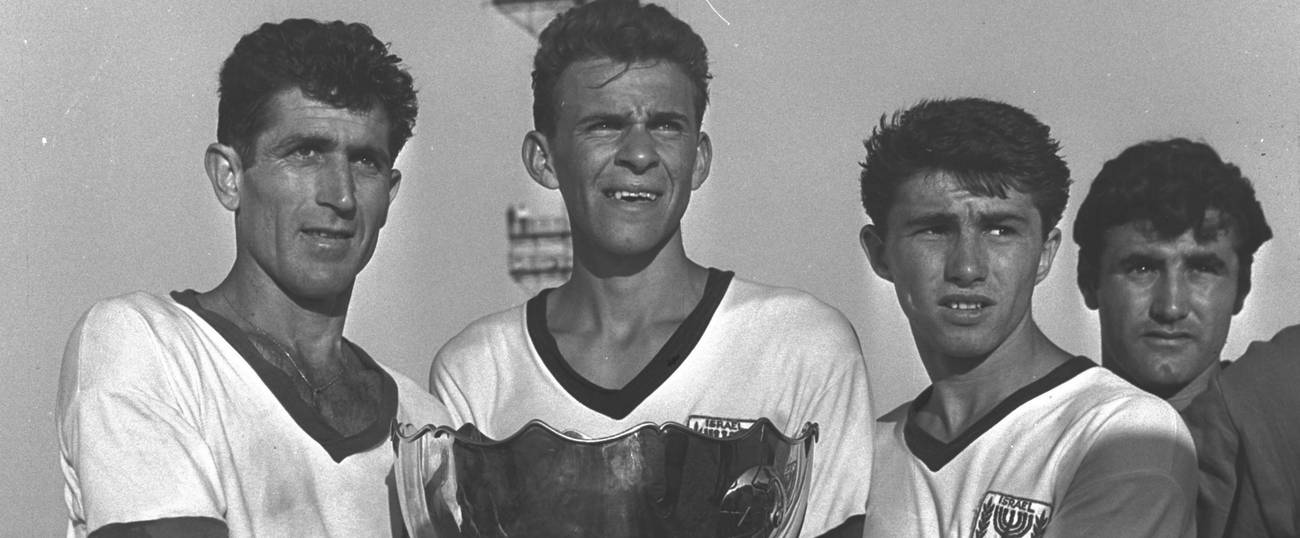Food Poisoning, Kleptomania, and Dirty Politics: Israel’s Troubled History in the World Cup
As the games begin in Russia, remembering the glories of soccer stars past




As they do every four years at the first whistle of a new World Cup, Israelis today are likely to turn to each other and, with a misty look in their eyes, ask each other the perennial question: Remember Mexico?
They’re talking about the fateful games of 1970, the only time Israel ever made it into soccer’s most exalted tournament. Even those who, like me, were years away from being born still remember Mexico. I can tell you who was on the team and who scored. I remember snippets of play-by-play by heart. Many of us do, because the Mondial, as it’s known throughout much of the rest of the world, is, really, the only occasion in which the world, a notoriously abstract concept, suddenly becomes relevant and concrete. The resolutions of the United Nations Security Council have little concrete impact; the match this Saturday between Argentina and Iceland, on the other hand, does.
Unsurprisingly, Israel’s path to the tournament was dramatic and rife with political intrigues and biases galore. A decade and a half before securing its independence, in 1934, the Jewish community in Palestine already had its mind on the cup, and a team of local soccer stars was dispatched to play Egypt in the British army’s barracks in Cairo. The Jewish goalie was a Hungarian-born superstar named Willie Berger, whose brilliant career was interrupted only by his kleptomania, which led to repeated arrests and interfered with his training. The Egyptian striker was the fierce Mahmoud Mukhtar, star of the local Arsenal Cairo. For a while, the match seemed even, but then a quarrel broke out among the Jewish defenders and the game soon turned into a farce, with the Egyptians triumphing 7-1.
A few more memorable matches followed, culminating in a 1940 victory over Lebanon, leading the Lebanese manager to ask his Israeli counterpart to kindly refrain from needlessly humiliating his boys by scoring more goals once the score was already 5-1. But with the nation busy being born, soccer wasn’t much of a priority until 1948, when the newly minted independent state dispatched its national team to play its first-ever international game, against the United States. Israel lost, 3-1.
The next two decades saw more drama off the pitch than on it. Managers were hired and fired, often by clueless bureaucrats accustomed to uncontested power in a socialist state. Opponents refused to play the Jewish state, sending international tournaments into chaos. And, in 1969, Israel was promptly kicked out of the Asian soccer federation by hostile member states protesting its victory, two years earlier, in the Six-Day War. To allow Israel the chance to compete for a spot in the World Cup, FIFA, soccer’s international governing body, assigned Israel to the Oceana division, pitting it against Australia and other nations located more than 7,500 miles away from Jerusalem. Israel registered an easy victory in its new group right away when North Korea refused to show up and play. A match against New Zealand was next. It was then that the miracle happened.
The miracle was remarkable synergy between two tremendously gifted players, Giora Spiegel and Mordechai Spiegler, and the ascent of a third, Shaya Faigenbaum. Between them, the three scored four goals, defeating New Zealand. Australia was next. By mid-December of that year, history was made: Israel had scored enough points to win a ticket to the cup.
Helping himself to the refreshments at the cup’s opening ceremonies in Mexico City, Spiegler soon came down with food poisoning. Israel lost its first game, against Uruguay, 2-0, but was determined to bounce back against the Swedes. Fifty three minutes into the game, Sweden scored. Three minutes later, a frantic Spiegel dashed with the ball, passing it to Spiegler who kicked it with force from 65 feet away and scored. The game ended in a tie, as did Israel’s next game in the cup, against Italy. The team hadn’t enough points to make it through to the next stage, but it returned home with the glory of having competed with dignity and grace. It’s an achievement the team hasn’t replicated since.
Let the best team win World Cup 2018, then. We’ll always have Spiegel, Spiegler, and the dream of returning sometime soon to the only competition in the world that truly matters.
Liel Leibovitz is editor-at-large for Tablet Magazine and a host of its weekly culture podcast Unorthodox and daily Talmud podcast Take One. He is the editor of Zionism: The Tablet Guide.